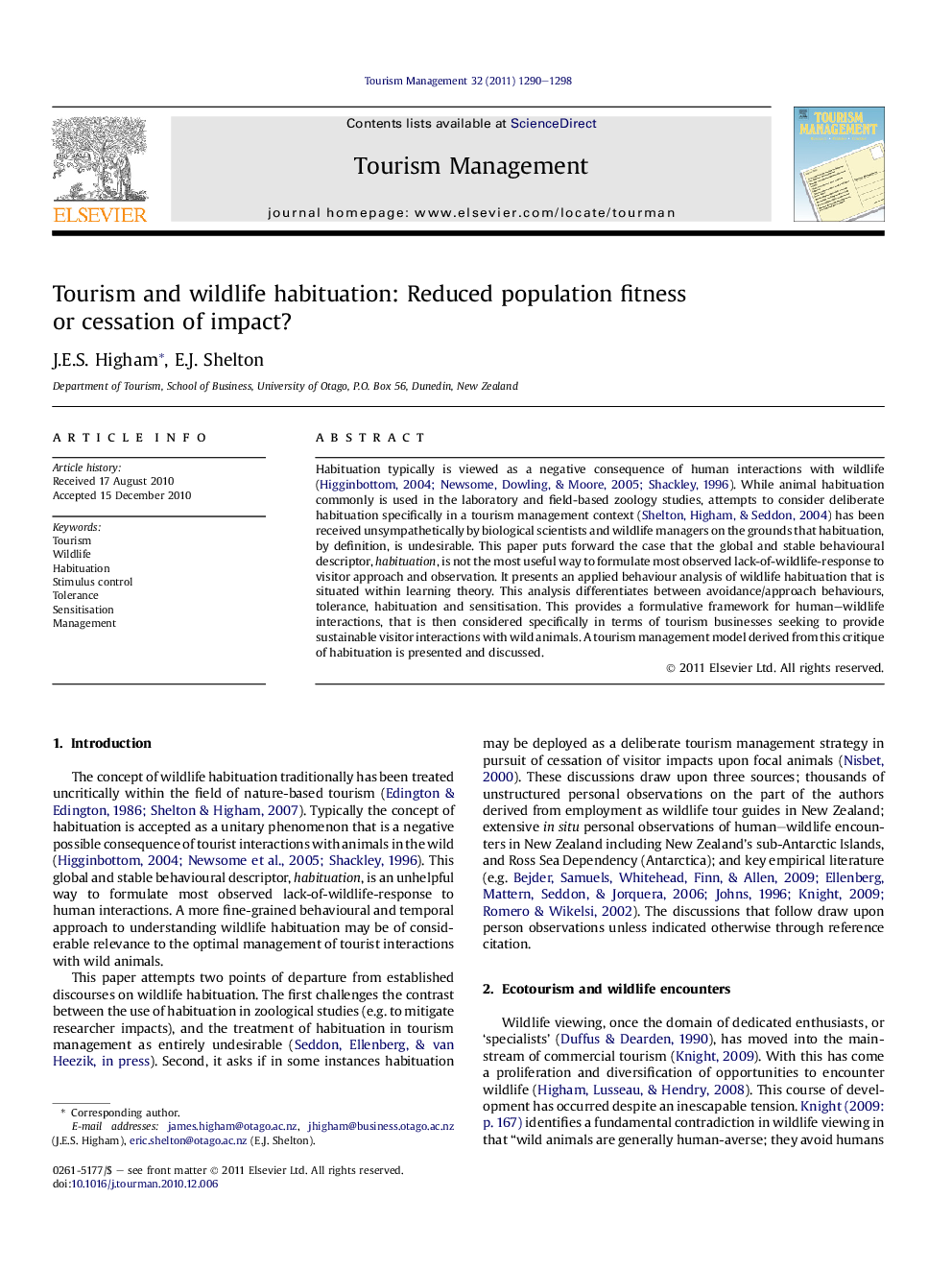| Article ID | Journal | Published Year | Pages | File Type |
|---|---|---|---|---|
| 1012650 | Tourism Management | 2011 | 9 Pages |
Habituation typically is viewed as a negative consequence of human interactions with wildlife (Higginbottom, 2004, Newsome et al., 2005 and Shackley, 1996). While animal habituation commonly is used in the laboratory and field-based zoology studies, attempts to consider deliberate habituation specifically in a tourism management context (Shelton, Higham, & Seddon, 2004) has been received unsympathetically by biological scientists and wildlife managers on the grounds that habituation, by definition, is undesirable. This paper puts forward the case that the global and stable behavioural descriptor, habituation, is not the most useful way to formulate most observed lack-of-wildlife-response to visitor approach and observation. It presents an applied behaviour analysis of wildlife habituation that is situated within learning theory. This analysis differentiates between avoidance/approach behaviours, tolerance, habituation and sensitisation. This provides a formulative framework for human–wildlife interactions, that is then considered specifically in terms of tourism businesses seeking to provide sustainable visitor interactions with wild animals. A tourism management model derived from this critique of habituation is presented and discussed.
